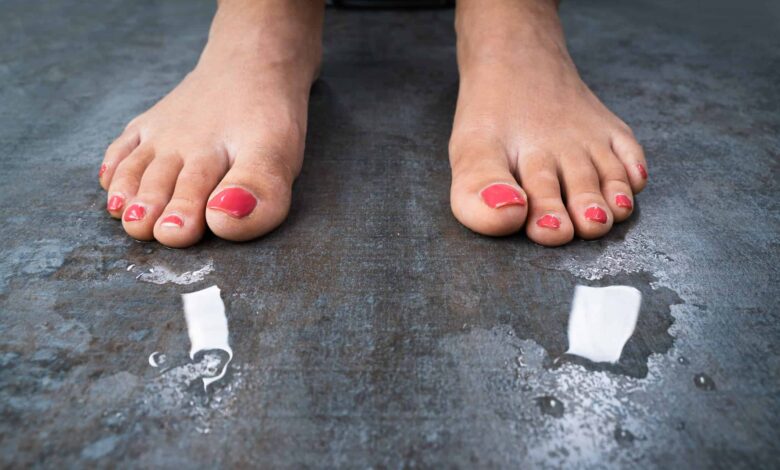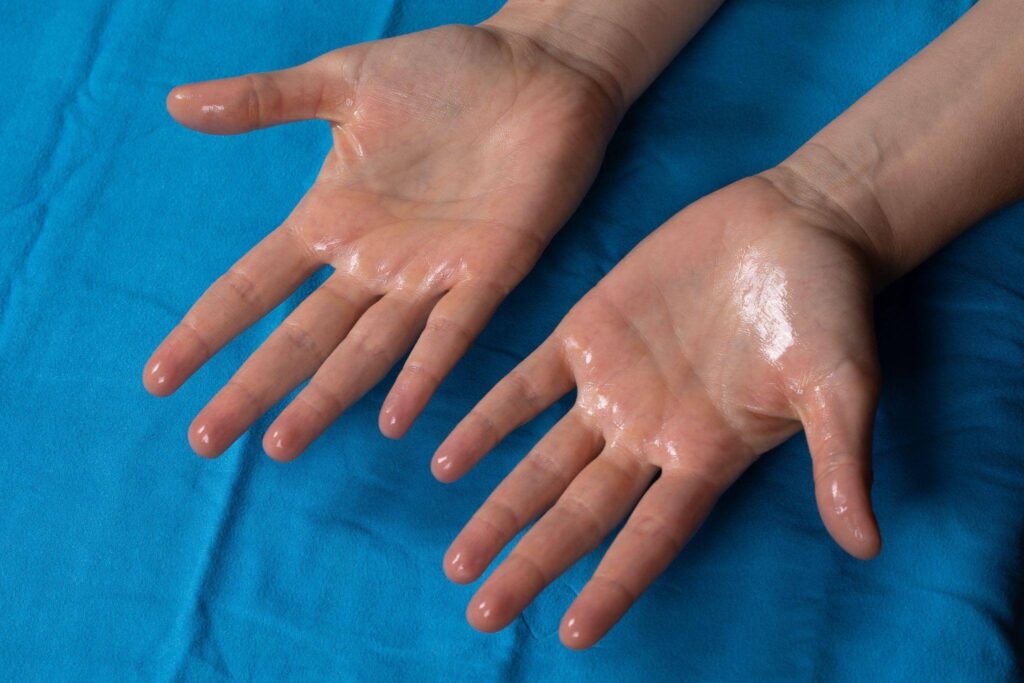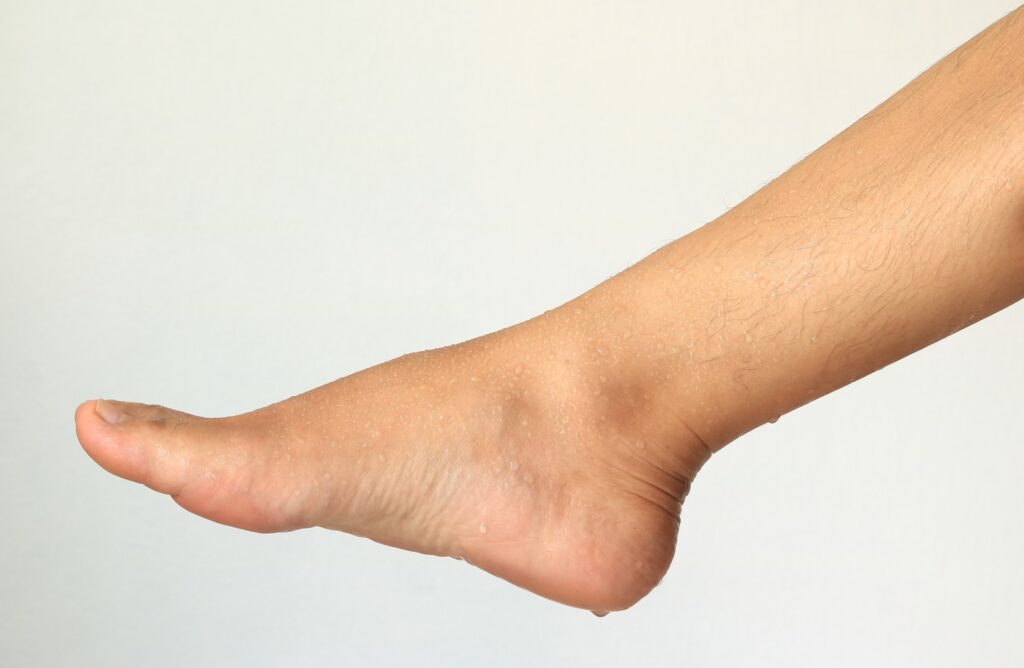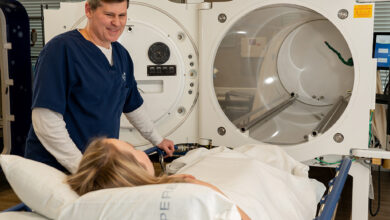Plantar Hyperhidrosis: Is There a Cure For Hyperhidrosis in the Feet?

When it comes to hyperhidrosis, feet can suffer from the condition just as much as any other body part. Plantar hyperhidrosis is a medical name for excessive sweating in the feet, and it can cause a great deal of discomfort and embarrassment. So, is there a cure for hyperhidrosis in the feet?
The answer depends on what type of hyperhidrosis a person has. Primary hyperhidrosis is a common condition that often begins in childhood and affects the hands, feet, face, and underarms. Secondary hyperhidrosis is not as common and can be caused by certain medications or medical conditions such as hyperthyroidism and diabetes. Check this site for more information.
In general, hyperhidrosis of the feet can be treated with a variety of medications, lifestyle changes, and other medical interventions.
Let’s take a deeper look at what this condition is, what causes hyperhidrosis feet, and some different ways to pursue treatment.
What is hyperhidrosis?

It is a medical term for excessive sweating. It can affect any part of the body, although in most cases, hyperhidrosis affects the hands, feet, face, and underarms. It is often caused by an overactive sympathetic nervous system or hyperactivity of sweat glands.
In some rare cases, it can be caused by certain medications, hyperthyroidism, or other medical conditions. Plantar hyperhidrosis is a form of hyperhidrosis that affects the feet specifically, and it can cause great discomfort, as well as embarrassment, when left unchecked.
What causes hyperhidrosis feet?
Primary hyperhidrosis of the feet is usually caused by hyperactivity of the sympathetic nervous system and sweat glands. It can often start during childhood or adolescence, and the exact cause is unknown.
Secondary hyperhidrosis of the feet can be caused by medications, hyperthyroidism, diabetes, or other medical conditions. In some cases, hyperhidrosis can also be caused by extreme emotional stress, certain foods, and hot weather.
Let’s take a closer look at each of these causes.
How is Hyperhidrosis Diagnosed?
It can often be diagnosed during a physical exam. Your doctor will ask you questions about your symptoms and check to see if there is excessive sweating in the areas that you’ve mentioned.
Your doctor may also recommend certain tests, such as sweat gland function or hyperthyroidism tests, to confirm the diagnosis.
How is hyperhidrosis of the feet treated?

There are a variety of treatments available for hyperhidrosis of the feet. These include:
Medications
Antiperspirants and topical creams can be used to reduce sweating in the feet. These products contain active ingredients such as aluminum chloride or glycopyrrolate, which help to temporarily block sweat glands and reduce perspiration. Oral medications are also available and can be used to reduce the activity of sweat glands in the feet.
Lifestyle Changes
Making lifestyle changes such as avoiding food and drinks that cause hyperhidrosis, wearing breathable fabric socks, or switching to shoes with more ventilation can help reduce sweating of the feet. Additionally, it’s important to stay hydrated by drinking lots of water and keeping your feet clean and dry.
Medical Procedures
In more severe cases, it may be treated with Botox injections or a surgical procedure called Endoscopic Thoracic Sympathectomy (ETS). Both of these treatments involve blocking or cutting certain nerves that trigger excessive sweating in the feet.
How To Narrow Down Which Treatment Option is Best for You
There is much to consider when thinking about which hyperhidrosis treatment option is best for you. Your doctor should be able to recommend the most appropriate course of action based on your individual circumstances.
Talk to your doctor about hyperhidrosis of the feet and which treatment options are available to you. With the right medical assistance, it can be managed, and you can live comfortably without excessive sweating of the feet.
How to Talk About Your Symptoms
If you think that hyperhidrosis of the feet is affecting your quality of life, it’s important to discuss this with your doctor. Be sure to talk about any other medical conditions you have and mention anything that may be causing hyperhidrosis, such as medication side effects or extreme emotional stress. This will help your doctor determine which treatment option is best for you.
It’s also important to tell your doctor about any lifestyle changes that have helped reduce hyperhidrosis, such as avoiding certain foods and drinks or wearing breathable fabrics. Be sure to mention any medications, topical creams, or treatments that you have tried so they can make an informed decision on what is best for you.
What are ten things Can You Do At Home to Get Some Relief?

When it comes to hyperhidrosis, there are some things you can do at home to help reduce the symptoms. These include:
- Wear breathable fabric socks and shoes with more ventilation.
- Take cooler showers or baths and avoid using hot water on your feet.
- Use an antiperspirant or topical cream on your feet.
- Avoid foods and drinks that can cause hyperhidrosis.
- Stay hydrated and drink lots of water.
- Use a fan or air conditioner to keep your feet cool during hot weather.
- Wear open-toed shoes when possible to allow more airflow around the feet.
- Try using foot powder or talcum powder to keep the feet dry and reduce sweating.
- Use an electric fan in front of your feet to cool them down when necessary.
- Avoid wearing tight shoes or socks that can cause the feet to get too hot and sweaty.
These are just a few of the things you can do at home to help reduce hyperhidrosis symptoms. It’s important to remember that it is treatable, and you don’t have to suffer any longer. With the right medical assistance, hyperhidrosis of the feet can be managed, and you can find relief from uncomfortable symptoms.
Final Thoughts
Overall, hyperhidrosis of the feet can be managed with medications, lifestyle changes, and medical procedures depending on the type and severity of the condition. While there is no cure for hyperhidrosis of the feet, it is possible to manage symptoms effectively. If you think you may have it or have already been diagnosed, be sure to talk to your doctor about available treatment options so you can find the best solution for you.



